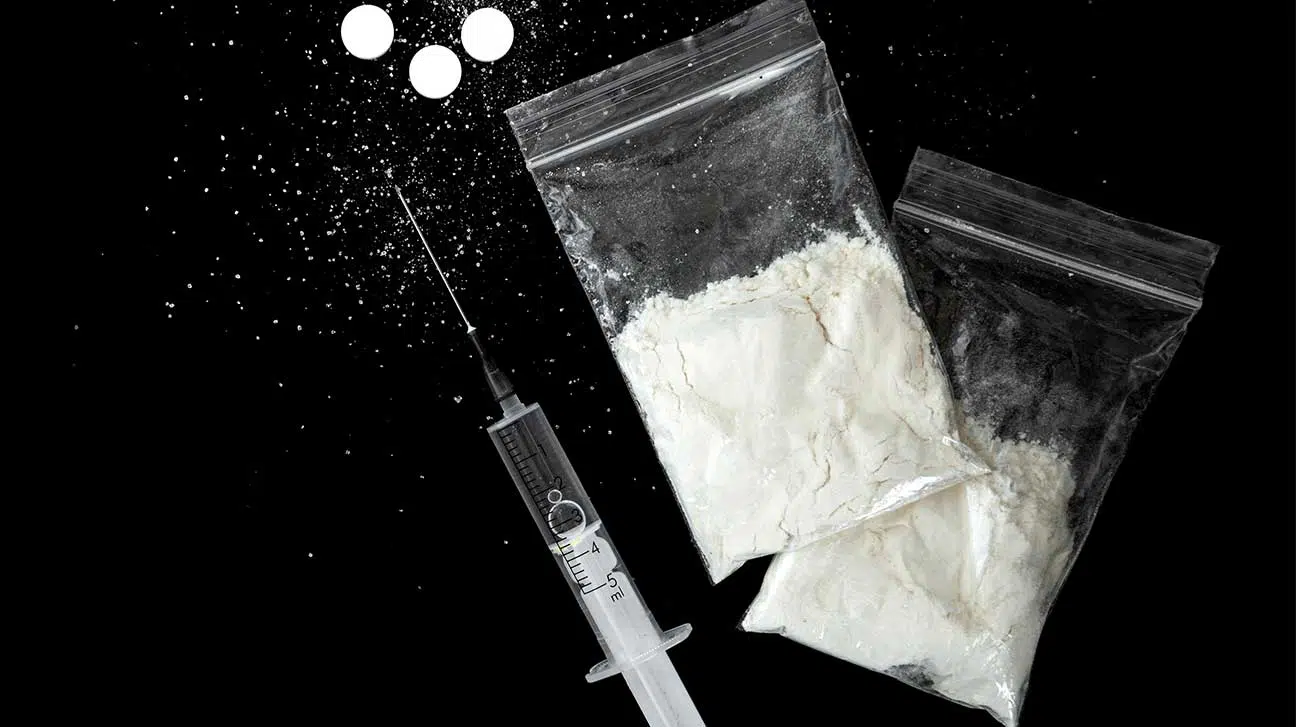
Combining prescription drugs with illegal drugs can cause significant side effects, especially mixing prescription drugs like morphine with cocaine.
A speedball is the street name for the combination of a stimulant (such as cocaine or methamphetamine) and an opioid (like morphine or heroin).
Speedballs are typically injected with needles, but can also be crushed and snorted together or the cocaine is sometimes “piggy-backed”, or taken immediately after the heroin.
People who abuse these drugs together sometimes believe that the negative side effects of each drug may be reduced, however, this is not the case.
Mixing cocaine and morphine can actually increase risk of negative side effects, permanent damage, overdose, and death.
Find out more about the dangers of mixing opioids and stimulants
Risks Of Abusing Speedballs
The biggest risk associated with abusing morphine and cocaine together is that the body is trying to metabolize multiple drugs at the same time.
Effects On Oxygen Intake
Cocaine actually increases heart and breathing rates, because it requires more oxygen than normal. However heroin slows breathing, putting excess strain on the heart, brain and lungs.
After taking morphine and cocaine together, the body often is not able to get enough oxygen to stay safe and navigate the effects of the cocaine.
Increased Risk For Overdose
In addition, the effects of cocaine start to taper off faster than heroin, so a person abusing speedballs may use more than someone using cocaine or heroin on its own.
This increases the risk of overdose and permanent damage.
Exposure To Dangerous Cutting Agents
Another problem associated with mixing cocaine with other drugs is that, in recent years, cocaine has been altered and contaminated by other substances, including fentanyl and trimethoprim.
Side Effects Of Speedballing Morphine And Cocaine
Abusing opioids, such as morphine, can cause excessive drowsiness, significant reduction in breathing rate, and confusion.
Abusing cocaine commonly leads to hypersensitivity, anxiety, irregular heart rate, rapid heartbeat, and high blood pressure.
Mixing morphine and cocaine into a speedball often places the person at extremely high risk for a number of unpredictable side effects.
Some side effects a person may experience when mixing cocaine and morphine include:
- incoherence
- paranoia
- arrhythmias
- insomnia
- mental impairment
- incoherence
- twitching or uncontrolled movement
- blurry vision
Mental Health Effects Of Speedballing
Those who abuse cocaine and morphine together have reported the following symptoms of mental health issues after ‘speedballing’:
- paranoia
- manic episodes
- anxiety
- depression
Additionally, people who abuse speedballs may also become more aggressive and confrontational.
Long-Term Side Effects Of Speedballing
In addition to the unpredictable side effects, abusing morphine and cocaine together can result in fatal effects due to:
- aneurysm
- heart attack
- respiratory failure
- stroke
- overdose
- death
Speedball abuse also leads to heart, liver, and lung damage.
Treatment For Speedball Addiction
A person abusing more than one substance, like morphine and cocaine, may require an addiction treatment program for polysubstance abuse.
Morphine abuse can also require a special type of addiction treatment, called medication-assisted treatment (MAT) programs.
An addiction treatment program that includes medically supervised detox, inpatient treatment, and a robust aftercare plan can increase the probability of long-term recovery.
Our treatment specialists are available to answer your questions and help you decide on the recovery program that is right for you or your loved one.
Addiction Resource aims to provide only the most current, accurate information in regards to addiction and addiction treatment, which means we only reference the most credible sources available.
These include peer-reviewed journals, government entities and academic institutions, and leaders in addiction healthcare and advocacy. Learn more about how we safeguard our content by viewing our editorial policy.
- Addiction — Understanding Polydrug Use - Review of Heroin and Cocaine Co-Use.
http://onlinelibrary.wiley.com/doi/pdf/10.1046/j.1360-0443.2003.00236.x - U.S. Drug Enforcement Administration — Cocaine laced with fentanyl leads to multiple deaths, overdoses
http://dea.gov/press-releases/2018/09/14/cocaine-laced-fentanyl-leads-multiple-deaths-overdoses - National Library of Medicine — Acute morphine and cocaine related death after trimethoprim-adulterated cocaine abuse
http://pubmed.ncbi.nlm.nih.gov/25361939 - National Library of Medicine: MedlinePlus — Morphine
http://medlineplus.gov/druginfo/meds/a682133.html#why - Pharmacology Biochemistry and Behavior — Effects of Cocaine and Morphine Under Mixed-Ratio Schedules of Food Delivery: Support for a Momentum Analysis
http://pubmed.ncbi.nlm.nih.gov/10880684


